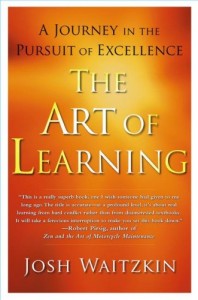One of the recent books that I’ve read was Josh Waitzkin’s The Art of Learning. In it, there was a section on small circles. It’s a simple theory. The focus is on mastering simple subsets of a discipline in order to make the rest less complex.
One example of how he applied that concept in his own life is found in the stories of his training sessions with his first coach. One thing that they used to focus on was the endgame of chess. They would play with only a minimal amount of pieces on the board in different configurations in order to reinforce the unique characteristics and advantages of each individual piece in Josh’s mind.
Now this concept was not new to me because I’ve heard it before in different forms, but it was great to hear again. Great concepts need to be reinforced so that they can be applied without hesitation.
Other Examples of the Small Circles Concept
The first time I learned about the concept of focusing on a subset of technique in order to aid in the process of mastery was when I bought Ryan Hall’s first instructional set on the Triangle. It came with a book that focuses on the concepts of the triangle and how Hall developed it while training at Team Lloyd Irvin.
One of the concepts that I remember from the book was area mastery, which is essentially the same as the small circles theory. The key difference is that the concept was being applied to Brazilian Jiu-jitsu.
Area mastery was all about focusing on the specific areas of BJJ in order to compete with individuals who had been training longer than you. The idea was that if you attained a high level of mastery in specific situations and were able to force a match into that situation, there would be a high probability of victory.
I was also exposed to the theory in the Book of Five Rings. There is a lesson in that book about how it is possible to learn by association. So in theory it is possible to speed up the process of mastering anything by mastering one thing first.
Another way to look at it is that once you master anything, whether it be a whole discipline or just subset, you can take the concepts you learned in that process and apply to other areas.

